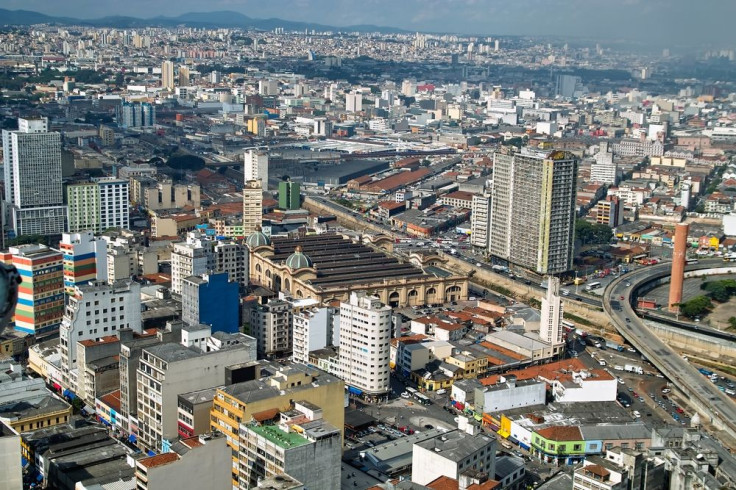Brazil's 2014 Will Be Shaped By The World Cup, Presidential Elections, And Yet Another Disappointing Economic Performance

Brazil has some busy months ahead. With a presidential election coming up, two major international sporting events on the horizon – one of them taking place this year – and the leftovers from an eventful 2013, the new year has some challenges in store for Latin America’s largest economy.
These are some of the key issues that are going to keep Brazilian officials busy for the 12 next months.
Inflation
Inflationary trends and the impact on public finances will be one of the main concerns for the new year. As 2014 rung in, consumer price inflation ran at 5.8 percent, below the target ceiling of 6.5 percent, but above the central bank target of 4.5 percent.
Robert Wood, Brazil analyst at The Economist Intelligence Unit, pointed out that it could have been even higher if the government had not acted to freeze prices for fuel, electricity and transport -- though those freezes came at high prices of their own.
The fuel cap harmed already weakened state-owned Petróleos Brasileros (NYSE:PBR). Electricity prices could only be tapped by offsetting the revenue shortfalls of state-controlled electricity companies through direct funding from the Treasury. And the transportation caps came after the largest social upheaval Brazil has ever seen, with demonstrations that targeted even the 2014 soccer World Cup, in a country where the sport is an article of faith.
This active management of prices, Wood explained, allowed so-called administered-price inflation, which corresponds to 25 percent of Brazil’s consumer price index (CPI), to remain at just below 1 percent in the last year. However, the remaining 75 percent, which included fields not targeted by the government, increased at a sharp 7.5 percent, significantly higher than the 6.5 percent target ceiling.
The trend will stay in 2014. “These policies are likely to continue this year, putting further pressure on the primary [budget ]surplus,” said Wood.
A weaker currency
The real, Brazil’s currency, suffered a hard blow in 2013. After the Venezuelan bolívar and the Argentinean peso, the real was the most devalued currency in Latin America versus the dollar, dropping 17 percent. The current exchange rate is 2.3 reales per $1.
Concerns over the direction of fiscal policy will continue to hang over exchange-rate markets. “The risk of a sharp devaluation resulting from a lack of confidence on the government’s handling of the economy cannot be ruled out,” said Wood.
Investment climate
The October elections will dominate most of the year; President Dilma Rousseff seeks reelection in a country whose population has found, after the 2013 demonstrations, that it can get power to listen. But as voters focus on the polls, investors will be looking beyond 2014, as the president likely prioritizes the campaign this year over economic policies.
A tepid economy, a revenue shortfall and an increase in spending all contributed to last year’s lackluster fiscal results. Had it not been for bumper proceeds from non-recurrent sources booked in the November fiscal accounts, the estimated outcome for 2013 would have been below the official estimate of a budget surplus at 2.3 percent of GDP. The underlying surplus is estimated to have been only around 1 percent of GDP. Alarms have been set off for 2014, when the elections will take all government efforts.
In addition, there is a risk that economic growth fail to pick up next year, and that new unrest might pressure the government into spending more to appease the protest movement.
Another disappointment in store?
The government hopes that GDP will grow faster than in 2013, owing to investments related to infrastructure concessions and to the development of oil fields. However, Woods pointed out that confidence remains weak. “Thus far, the government has failed to recognize the importance of the risks,” he said.
2014 is set to follow the “Brazilian new normal,” which means another disappointing performance without falling into recession. Investors will at least be hoping that 2015, after the election craze passes, brings improvements in policymaking.
--
(Note: Sao Paulo photo by Shutterstock.com.)
© Copyright IBTimes 2024. All rights reserved.




















